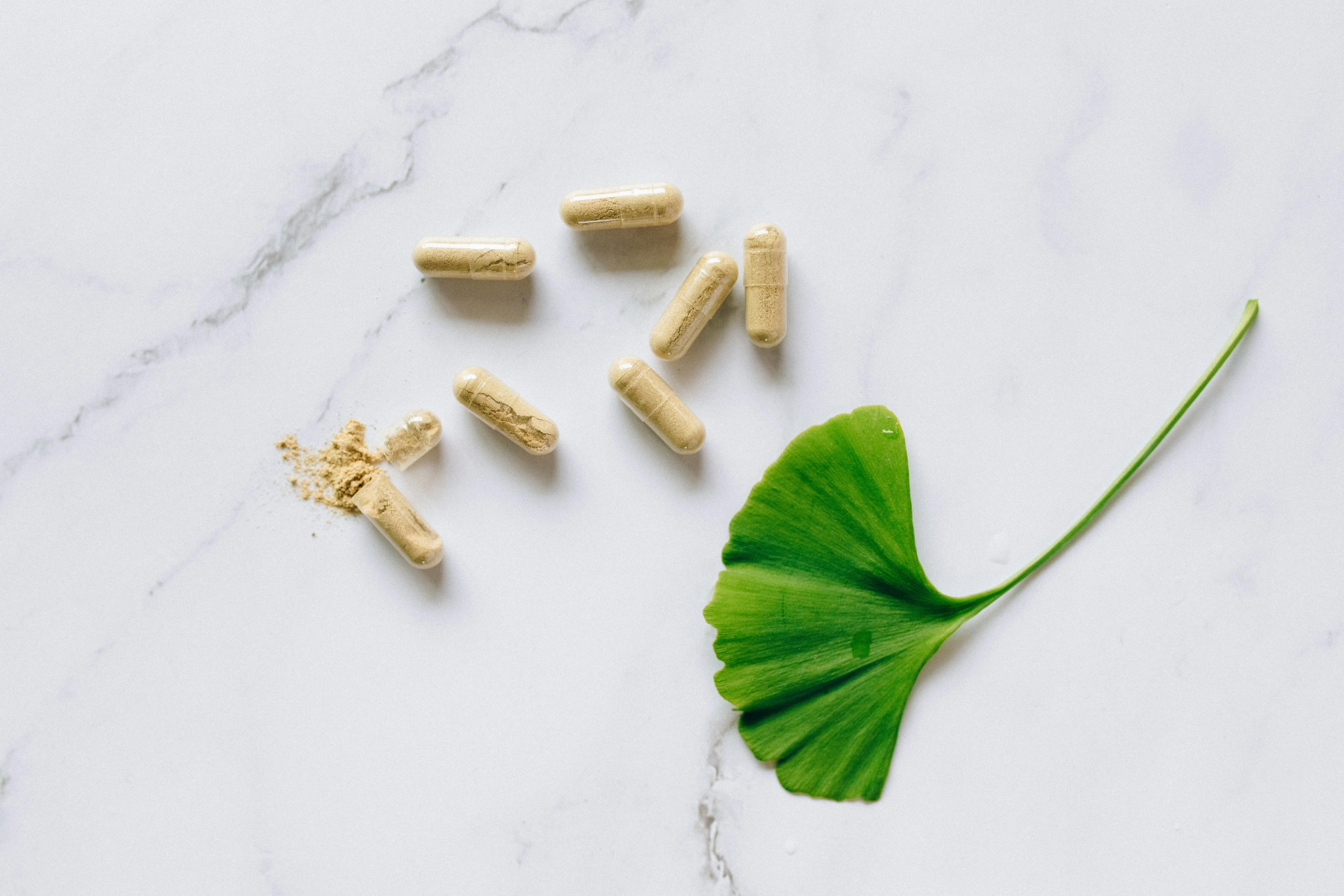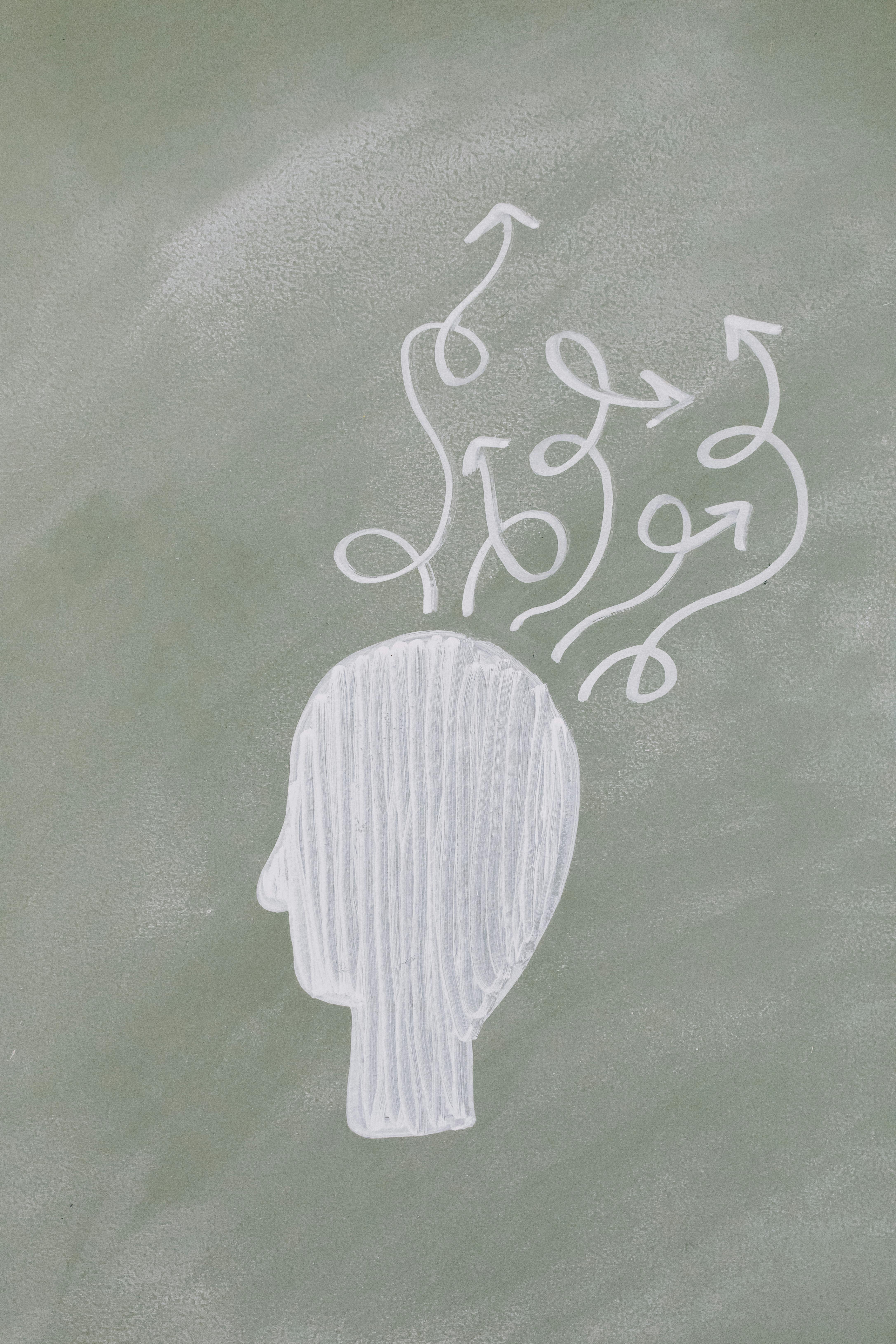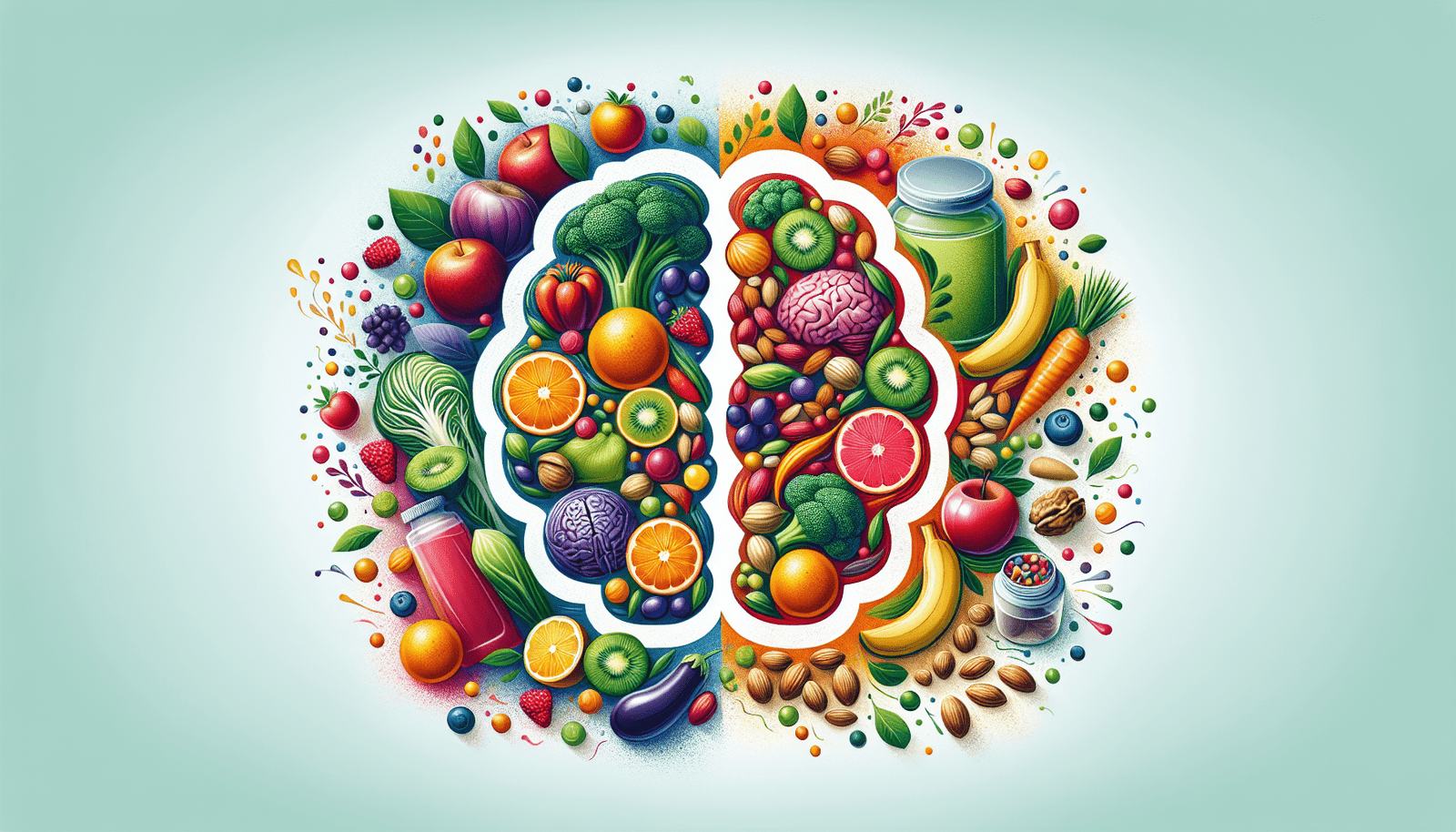If you or someone you know is struggling with symptoms of ADHD or ADD, you may have wondered about the potential benefits of supplements. The good news is that there are indeed some supplements that may assist in managing these symptoms. While they should never replace the guidance of a healthcare professional, certain vitamins and minerals, such as omega-3 fatty acids, zinc, and magnesium, have shown promising results in improving attention, focus, and impulse control. In this article, we will explore the potential benefits of these supplements and how they can complement traditional treatments for ADHD or ADD. So, let’s dive into the world of supplements and discover how they can potentially help in managing symptoms of ADHD or ADD.

Understanding ADHD and ADD
What is ADHD?
ADHD, which stands for Attention Deficit Hyperactivity Disorder, is a neurodevelopmental disorder that primarily affects children but can also continue into adulthood. It is characterized by persistent patterns of inattention, impulsivity, and hyperactivity that can interfere with daily functioning and development. Individuals with ADHD may struggle with staying focused, organizing tasks, completing assignments, and controlling impulses.
What is ADD?
ADD, or Attention Deficit Disorder, is a subtype of ADHD. It is commonly referred to as ADHD without the hyperactivity component. Individuals with ADD primarily struggle with inattention and may appear less impulsive or hyperactive compared to those with ADHD. However, they still face similar challenges in terms of maintaining attention, staying organized, and managing tasks.
Common symptoms of ADHD and ADD
The common symptoms associated with ADHD and ADD can vary from person to person, but the following are frequently observed:
- Inattention: Difficulty staying focused, easily distracted, struggles with organizing tasks, and forgetfulness.
- Hyperactivity: Constant fidgeting, restlessness, difficulty staying seated, and excessive talking.
- Impulsivity: Acting without thinking, interrupting conversations, difficulty waiting for turns, and impatience.
- Lack of organization: Difficulty with planning, time management, and completing tasks.
- Poor impulse control: Impulsive behaviors, difficulty inhibiting inappropriate responses, and acting on immediate desires.
- Emotional dysregulation: Difficulty regulating emotions, mood swings, and sensitivity to criticism.
It is important to note that everyone may experience these symptoms to some extent, but for individuals with ADHD or ADD, these symptoms significantly impact their daily lives and relationships.
Supplements for Managing ADHD or ADD Symptoms
Importance of a balanced diet
A balanced diet rich in essential nutrients is crucial for overall brain health and can potentially help manage ADHD or ADD symptoms. It is recommended to consume a variety of fruits, vegetables, whole grains, lean proteins, and healthy fats. This ensures an adequate intake of vitamins, minerals, and other essential nutrients needed for optimal cognitive functioning.
Consulting a healthcare professional
Before considering any supplements, it is important to consult with a healthcare professional, such as a doctor or registered dietitian, who can evaluate your individual needs and provide personalized guidance. They can help identify any nutrient deficiencies, address potential interactions with medications, and recommend appropriate doses for supplements if necessary.
Considerations before taking supplements
When considering supplements for managing ADHD or ADD symptoms, it is important to keep the following considerations in mind:
- Quality and safety: Ensure that the supplements are from reputable brands and have undergone third-party testing for purity and potency.
- Individual needs: Different individuals may have varying nutritional requirements and may benefit from different supplements. Consulting a healthcare professional can help determine the most suitable options.
- Medication interactions: Some supplements may interact with certain medications used for treating ADHD or ADD. Disclose all medications and supplements you are taking to your healthcare professional to avoid any potential interactions.
- Potential side effects: While supplements are generally safe, they may cause side effects in some individuals. It is essential to be aware of any potential adverse reactions and discontinue use if any occur.
Omega-3 Fatty Acids
How omega-3 fatty acids may help
Omega-3 fatty acids, particularly EPA (eicosapentaenoic acid) and DHA (docosahexaenoic acid), are essential fats with potential benefits for brain health. Some studies suggest that omega-3 supplementation may help reduce symptoms of ADHD and ADD, such as inattention and hyperactivity. These fatty acids play a crucial role in maintaining proper communication between brain cells and are involved in neurotransmitter function.
Food sources of omega-3 fatty acids
Including omega-3-rich foods in your diet is the best way to obtain these essential fatty acids. Good sources include fatty fish like salmon, mackerel, and sardines, as well as flaxseeds, chia seeds, walnuts, and hemp seeds. Consuming these foods regularly can contribute to an adequate intake of omega-3 fatty acids.
Supplement options
In some cases, it may be challenging to consume enough omega-3 fatty acids through diet alone. In such instances, omega-3 supplements can be considered as a complementary approach. Fish oil capsules or liquid, krill oil, or algae-based omega-3 supplements are readily available options. It is recommended to consult with a healthcare professional to determine the appropriate dosage and source of omega-3 supplements.
Iron
Importance of iron for brain function
Iron is an essential mineral that plays a crucial role in brain development and function. It is involved in the production of neurotransmitters, which are crucial for proper cognitive function. Iron deficiency has been associated with increased symptoms of ADHD and ADD, including poor attention span and impaired cognitive abilities.
Food sources of iron
Including iron-rich foods in your diet is important to maintain optimal iron levels. Good sources of iron include lean meats, poultry, seafood, beans, lentils, tofu, spinach, and fortified cereals. Consuming these foods regularly can help ensure an adequate intake of iron.
Supplement options
If iron levels are significantly low or if recommended by a healthcare professional, iron supplements may be considered. Iron supplements are available in various forms, such as ferrous sulfate, ferrous gluconate, and ferrous fumarate. However, it is crucial to consult with a healthcare professional before starting any iron supplements, as excessive iron intake can be harmful.

Zinc
Role of zinc in cognitive function
Zinc is an essential mineral that plays a vital role in cognitive function and brain health. It is involved in neurotransmitter regulation and helps maintain optimal brain function. Some studies have suggested a potential link between zinc deficiency and ADHD symptoms, particularly inattention and impulsivity.
Food sources of zinc
Including zinc-rich foods in your diet can help ensure an adequate intake of this essential mineral. Good sources of zinc include oysters, beef, chicken, pumpkin seeds, cashews, yogurt, and fortified cereals. Incorporating these foods into your meals can contribute to maintaining optimal zinc levels.
Supplement options
In cases of zinc deficiency or if recommended by a healthcare professional, zinc supplements can be considered. Zinc supplements are available in various forms, such as zinc gluconate, zinc sulfate, and zinc citrate. It is important to consult with a healthcare professional to determine the appropriate dosage and form of zinc supplements.
Magnesium
Impact of magnesium deficiency
Magnesium is an essential mineral involved in more than 300 enzyme reactions in the body, including those related to brain function. Magnesium deficiency has been associated with symptoms such as inattention, hyperactivity, and impulsive behavior, resembling those observed in ADHD or ADD.
Food sources of magnesium
Including magnesium-rich foods in your diet can help maintain optimal magnesium levels. Good sources of magnesium include leafy green vegetables, nuts, seeds, legumes, whole grains, and dark chocolate. Incorporating these foods into your meals can contribute to an adequate intake of magnesium.
Supplement options
In some cases, magnesium supplements may be recommended to address magnesium deficiency or manage ADHD or ADD symptoms. Magnesium supplements are available in various forms, such as magnesium oxide, magnesium citrate, and magnesium glycinate. Consulting with a healthcare professional is essential to determine the appropriate form and dosage of magnesium supplements.

Vitamin B6 and B12
Importance of B vitamins for brain health
B vitamins, including vitamin B6 and B12, play a crucial role in brain development and function. They are involved in the production of neurotransmitters and support proper cognitive function. In some cases, deficiency in these vitamins has been associated with symptoms resembling those seen in ADHD or ADD.
Food sources of B6 and B12
Incorporating foods rich in vitamin B6 and B12 into your diet is important for maintaining optimal levels of these vitamins. Good sources of vitamin B6 include poultry, fish, potatoes, bananas, and fortified cereals. Vitamin B12 is primarily found in animal-based foods like meat, fish, eggs, and dairy products. Including these foods in your meals is beneficial for maintaining adequate B vitamin levels.
Supplement options
If deficiency in vitamin B6 or B12 is evident or recommended by a healthcare professional, supplements can be considered. Vitamin B supplements are available in various forms, such as tablets, capsules, and gummies. However, it is crucial to consult with a healthcare professional to determine the appropriate dosage and form of B vitamin supplements.
Ginkgo Biloba
Potential benefits of ginkgo biloba
Ginkgo biloba is an herb that has been used in traditional medicine for centuries. It is believed to have neuroprotective and antioxidant properties that may support brain health and cognitive function. Some studies have suggested potential benefits of ginkgo biloba in improving attention, memory, and overall cognitive performance in individuals with ADHD or ADD.
Considerations before taking ginkgo biloba
While ginkgo biloba may offer potential benefits, it is important to consider a few factors before incorporating it into your routine. Ginkgo biloba may interact with certain medications, including blood thinners and antidepressants. Additionally, it may not be suitable for individuals with bleeding disorders or those scheduled for surgery. Consulting with a healthcare professional is essential to determine if ginkgo biloba is safe and appropriate for you.
Supplement options
Ginkgo biloba supplements are available in various forms, such as capsules, tablets, and liquid extracts. When considering ginkgo biloba supplements, it is recommended to choose products from reputable brands that adhere to safety standards. It is crucial to follow the recommended dosage and consult with a healthcare professional to ensure proper use.
L-Theanine
Calming effects of L-Theanine
L-Theanine is an amino acid commonly found in green tea. It is known for its calming effects on the brain and has been suggested to promote relaxation and improve focus. Some studies have shown promise in using L-Theanine to reduce anxiety and improve attention in individuals with ADHD or ADD.
Food sources of L-Theanine
While L-Theanine is primarily found in green tea, it is also present in smaller amounts in black tea and certain mushrooms. However, the concentration of L-Theanine in these food sources may vary, making supplementation a more reliable option.
Supplement options
L-Theanine supplements are available in various forms, including capsules and tablets. It is important to choose supplements from reputable brands and consult with a healthcare professional for proper dosage recommendations.
Conclusion
Supplements as a complementary approach
Supplements can be a valuable complementary approach in managing ADHD or ADD symptoms, but they should never replace traditional treatments or therapies. When used alongside proper medical care, supplements can potentially support brain health and improve symptoms.
The importance of individualized treatment
It is crucial to remember that individuals with ADHD or ADD may have unique nutritional needs and responses to supplements. Consulting with a healthcare professional is essential to evaluate individual requirements and develop a personalized treatment plan.
Evaluating potential benefits and risks
When considering any supplement, it is important to weigh the potential benefits against the potential risks. Understanding the evidence supporting the use of specific supplements, considering the individual’s unique needs, and consulting with a healthcare professional can help make informed decisions about supplementation for managing ADHD or ADD symptoms.
By taking a comprehensive approach that includes a balanced diet, appropriate supplements, and professional guidance, individuals with ADHD or ADD can enhance their overall well-being and potentially experience improvements in their symptoms. Remember, supplement use should always be part of a broader treatment plan that includes lifestyle modifications, therapy, and medication if necessary.
